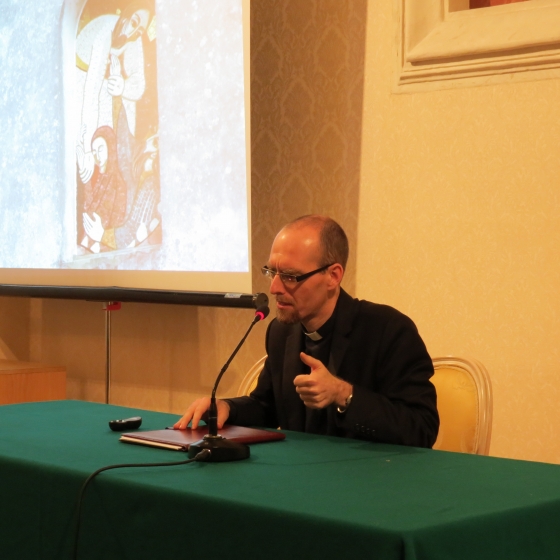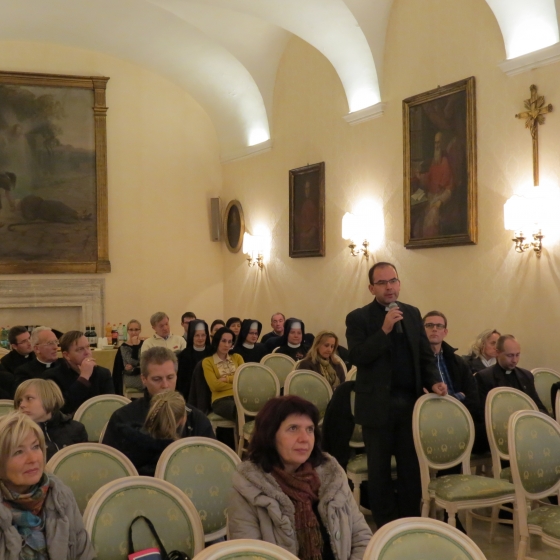A subject of the Sunday meeting at the St. Stanislaus Bishop and Martyr Church in Rome was the family in the teaching of the Second Vatican Council. The meeting was organized, as a part of the cycle entitled “The Second Vatican Council as a Compass of the New Evangelization”, by the Centre for Documentation and Research of the Pontificate of John Paul II and the ministry of the Polish people in the Eternal City. This time the issue concerning family was presented by Rev. Dr. Przemysław Kwiatkowski. The speaker is working in the Pontifical John Paul II Institute for Studies on Marriage and Family at the Pontifical Lateran University in Rome. The exact theme of his presentation was “Direction: A Family Home”.
The lecturer drew attention to the fact that the Second Vatican Council had included its teaching about family in the Dogmatic Constitution on the Church “Lumen gentium” and in the Pastoral Constitution “Gaudium et spes”. “It is a clear hint” – he said – “we should look at the Church as a family, and at a family as the family Church”. He was also alluding to the relevant papal documents, especially those of John Paul II and Benedict XVI.
The Council underlined that the issue of family is one of the urgent problems of the modern world, and therefore it is so important to bring people closer to the Christian vision of family life. Vatican II appreciated the theology of family stressing the role of faith and our relationship with Christ.
“One of the biggest challenges facing the Church lies” – said Fr. Kwiatkowski – “in the discovering and nurturing sensitivity toward the presence of God in the families”. And this is also connected with the depth of understanding and experiencing of conjugal and family love. A family should create a home, i.e. a community where everyone has their place, role, and vocation. Our faith teaches us that a family should create a home, i.e. a community where everyone has their place, role, and vocation.
The Second Vatican Council showed the vocation of family as “the first school of the Christian life and a school for human enrichment”. The Council meant by this a harmonious vision between nature and grace, as well as between anthropology and theology. The speaker stressed also the role of families that despite everyday problems were considered in their communities to be a leaven of good, living by faith, and mutual love. The world – though so many families are in crisis – can meet God just thanks to families. The Council was aware that the future of the Church and the Christian faith would depend largely on families. Vatican II pointed the way on which families should discover their own great vocation and tasks that are appointed to them by Christ.
After the lecture, participants of the meeting asked questions and shared their reflection. Among other things, Fr. Kwiatkowski was asked whether expectations that the Church would change its practice and would admit divorced persons and these living in civil marriages to Holy Communion, were reasonable. Answering this question, the speaker remarked that the theology of marriage underlies unity of two people with Christ, and this is expressed by the full participation in the Eucharist. Therefore the theological premises indicate the maintenance of current practice. But it is also important that nobody, neither in the Church nor in families, feel rejected, or deprived of spiritual help.


